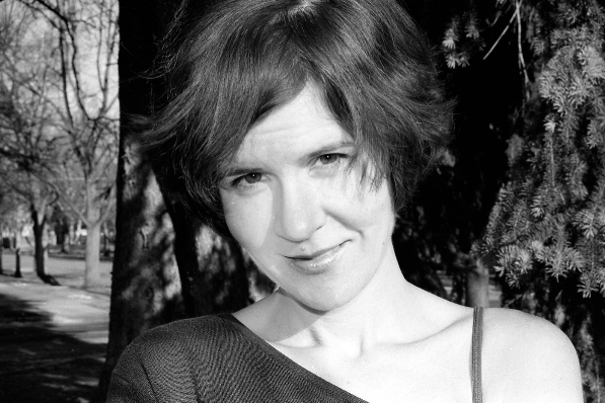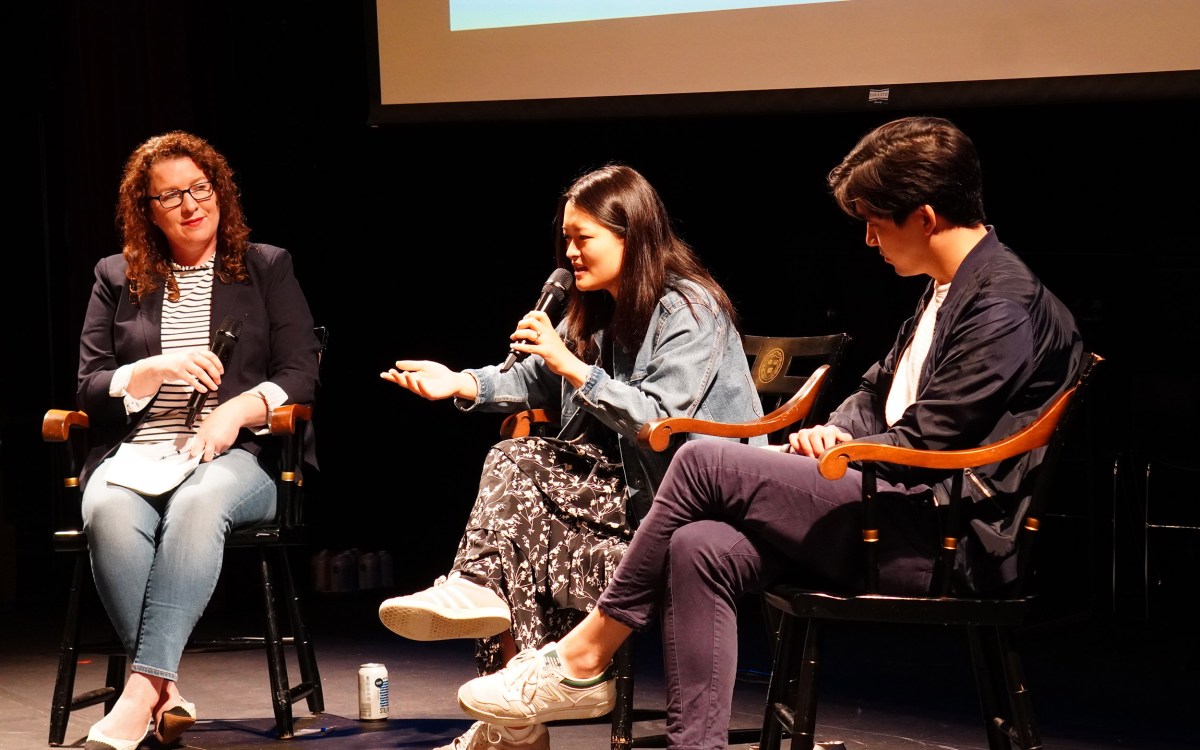
What comes after
Poet’s latest book stirs embers of a failed relationship
“I do best when my mind is quiet,” said poet Joanna Klink. “I live for those hours when I feel most receptive and open, and can pay attention to my own imagination, listen to the line I’ve just written.”
Klink, the Briggs-Copeland Poet in the English Department, has just published “Raptus,” a heartbreaking collection about a failed personal relationship.
“I’ve had a ridiculously privileged life. Nobody I’ve loved deeply has died, and I’ve always had the support of close friends and family. To say that I was unprepared for heartbreak is an understatement,” said Klink. “For better or for worse, my naïveté and sheer helplessness drove these poems.”
In 2006, Klink’s relationship started to fray. She was teaching poetry in the University of Montana’s M.F.A. program, and, she recalls, “By the time I finished the book several years later, [my relationship] was more or less destroyed.”
Yet the poems abstain from self-pity, and are instead immersed in the natural world.
“Living in Montana, I felt surrounded by the raw hugeness of weather and terrain — by snow and white sunlight, riverbeds, aspen. There’s an intense desolation in the landscape that I came to love, a barrenness that softens and hardens as you move through it.”
In “Sorting,” Klink wrote: “That day in June — we heard the echo of a meadowlark. // Let go the meadowlark and the valley in which its song / repeated itself and the valley in which its song unfolded. // Let go the dream of such clear sound. // Let go the walks, dinners, drinks, talks, senses of beginnings, let go / the beginnings, we will never begin again. // Let go the still gray sky. It has propped us up long enough.”
Klink said she included the natural world in her poems because, “By then, it had become my world. The deer, the valley stillness, the wild brightness of stars — these were constants at a time when everything else about who I was felt scattershot and hopeless.”
Now, after “many years of procrastinating,” Klink is working to finish a book on the Jewish-Romanian German-language poet Paul Celan. “It’s meant to be both a lyric meditation on Celan’s poetry — poetry that his critics called “obscure” — and an exploration of the strangeness of poetry in general.”
Klink is also the author of “Circadian” (2007) and “They Are Sleeping” (2000).
“As a poet, part of the complete disorientation in losing someone — in my case, the most crucial person in my life — is not knowing whom to speak to, not having any idea what will hold you up or hold you together,” she said.
“Halfway through ‘Raptus,’ I realized that what I wanted most was to hold on to the shape of the love I had for him, even if he was no longer there, to find a way to keep that love intact and redirect it toward other people and things. Although I may not have succeeded in doing this in the poems themselves, just writing the poems made me want to strive for that in my life.”
In the haunting “Cargos, Islands, Shores,” Klink writes:
Lest we think
the world has hardened we do not harden
Sleepwalker suppose there are other loves
velvet-wet night on the tarmac
I will always adore you So long



